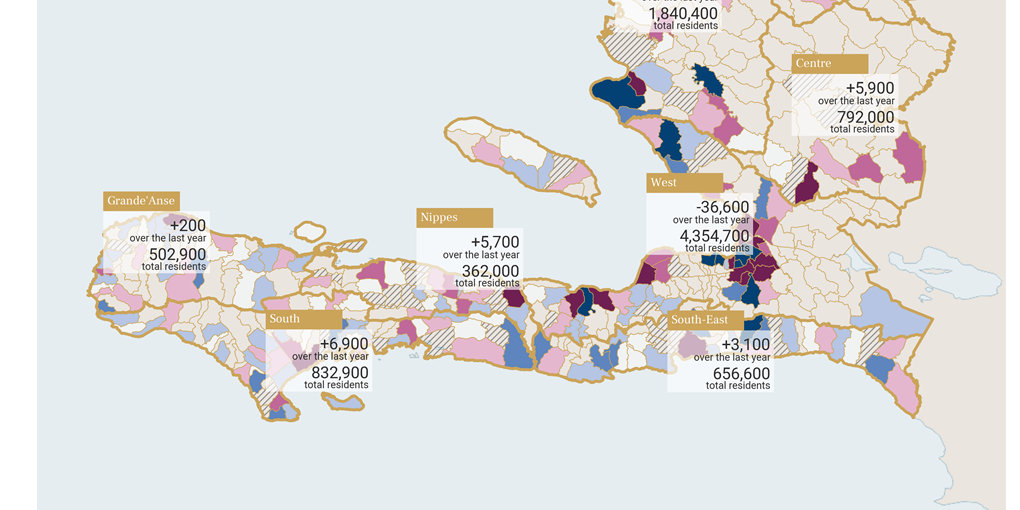Flowminder and Digicel Haiti released, in early April, a report providing up-to-date information on population distribution and mobility across Haiti, offering critical support for contingency planning ahead of the 2025 hurricane season.
As humanitarian actors and government agencies gear up for what could be another intense hurricane season, access to accurate, current data is vital. This report and dataset fill an information gap by offering an up-to-date view of where people are in Haiti, up to 31 March 2025, and how these patterns have shifted over the past year, especially in March 2025 when thousands left the metropolitan area of Port-au-Prince for other regions in the country. These insights are essential for effective risk mapping, resource pre-positioning, and shelter planning.

In a country where official population data are still largely based on the 2003 census and limited surveys, this report marks a significant advance.
It leverages anonymised mobile phone usage data from Digicel Haiti, analysed with Flowminder's cutting-edge modelling technology to produce granular, monthly population statistics at the communal section level.
Unlike traditional datasets, this initiative reflects seasonal, shorter-term and conflict-related mobility patterns, offering humanitarian actors and government agencies a more accurate foundation of population distribution for contingency planning.
Short-term internal mobility affects population statistics and projections, and that’s what our partnership with Digicel solves: we augment traditional statistics with frequently updated and accurate estimates which are essential for disaster preparedness, such as planning stocks and resources
— Véronique Lefebvre, Director of Analysis at Flowminder.
At Digicel, we believe that technology should serve our communities, especially in times of need. We are proud of our partnership with Flowminder who shares this commitment. Through this partnership, we play a vital role in protecting lives with technology in the events of extreme weather conditions and together, we intend to continue to uplift our communities and stand by them, no matter the challenges
— Jean Philippe Brun, Chief Executive Officer, Digicel Haiti
Currently, we are in discussion with the UN Office for the Coordination of Humanitarian Affairs (OCHA) to explore how these new estimates can directly inform cluster-level contingency stock planning and enhance coordination during emergencies. This collaboration is part of a broader effort to strengthen disaster resilience in Haiti by integrating big data into preparedness efforts for evidence-based decision-making.
The report includes a national dashboard estimating population shifts across Haiti and department-level insights for all ten departments, with a 12-month historical view to understand emerging patterns, updated every three months.
